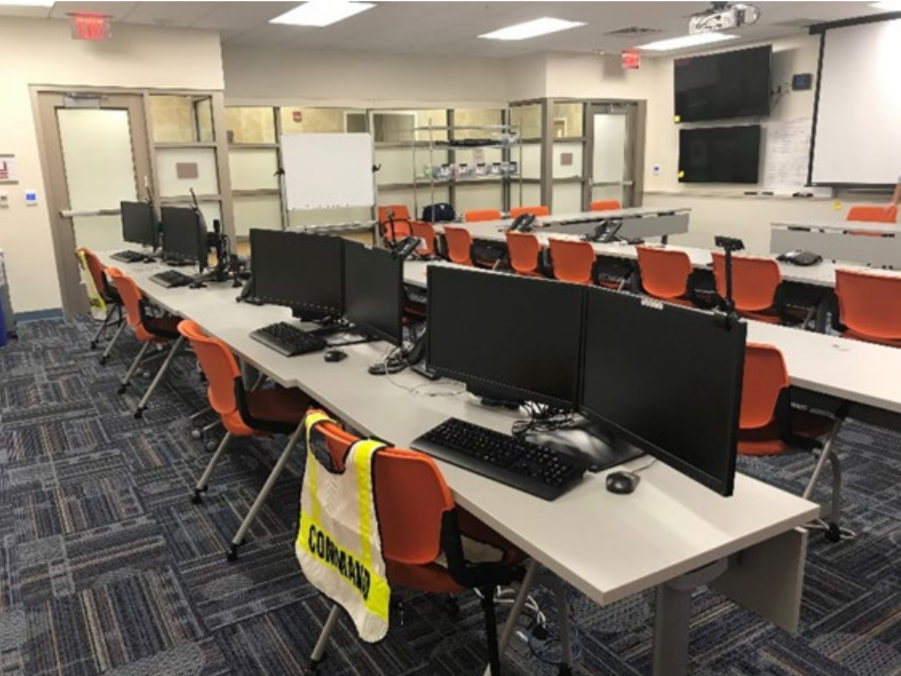The mission statement of Maryland-National Capital Emergency Response System (MDERS) is to support the integration of fire, rescue, emergency medical services, law enforcement, emergency management, public health, and healthcare systems to ensure a coordinated response to emergency incidents through strategic planning, information sharing, training, exercises, and equipment allocation. While each discipline has unique requirements to build capabilities, all share the common need to manage and coordinate resources at an incident. The tool that connects the emergency response disciplines is the Incident Command System (ICS).
The Montgomery County Public Health Emergency Preparedness Program and Response (MCPHEPR) program recognized their need to expand their capacity to use ICS processes. The review of several after-action reports showed that coordination and communication were a consistent challenge. Specifically, public health response often has a limited number of staff with knowledge of field operations and incident command experience. This makes it difficult to coordinate a broader or multi-site response while also providing direction in the field.
To address these capability gaps, public health officials and MDERS staff reviewed strategy plans, current documents, and reports. From this examination, the group identified the plans, organization, equipment, training, exercise and evaluation elements (POETEE) needed to remedy areas of improvement. This action produced a capability plan that mapped out the steps for change.
Following the plan sequence, a set of activities and tasks were developed. Both fixed and mobile ICS resources were identified and requested as a part of the allocation request from the Urban Area Security Initiative grant. These included a command center, a vehicle to assist in deployments, and equipment and supplies to support ICS operations.
The first step was to expand ICS training. MDERS staff worked with Montgomery County Office of Emergency Management and Homeland Security to sponsor and instruct a series of ICS 300 and 400 level courses. Select public health staff also completed command staff position-specific training. This set of trainings prepared the public health members to exercise and drill with the correct tools.
To test these capabilities, MC-PHEPR partnered with School Health Services to operate three simultaneous flu vaccine clinics. The objectives for the exercise included staffing all ICS positions, developing the incident action plan with all supporting documents, delivering just in time training to the on-scene staff, and coordinating situational awareness between sites to ensure efficient use of limited vaccine resources.
The locations for the activities were Montgomery County’s public high schools with all events occurring after normal school hours. Using the mobile command equipment, PHEPR was able to coordinate personnel and supply deployments, track available resources, and provide updated direction to each facility.
The results from this exercise included a throughput process of more than900 patients in three hours. The exercise was a success and demonstrated proficient use of ICS to manage complex public health scenarios.
For additional information on this project or questions about MDERS please contact Michael McAdams, Maryland ERS Planning & Organization, at Michael.mcadams@maryland.gov


